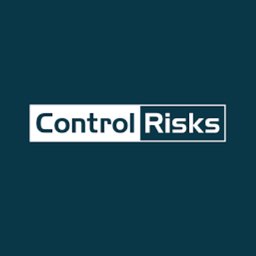Job Opportunities in Saudi Arabia

September 3, 2024
Control Risks
المدينة
FULL TIME
Embedded Security Engineering Technical Consultant
Job Title: Security Engineering Technical Consultant
The Security Engineering Technical is responsible for providing technical
leadership and expertise in designing and implementing robust security solutions within an
organization. This role involves assessing security risks, developing security architectures, designing
secure systems, and overseeing the implementation and maintenance of security controls. The
Security Engineering Lead collaborates with cross-functional teams to enhance the organization's
security posture and mitigate potential threats. also provide technical guidance and support to other
security engineers and analysts, as well as collaborate with other collaborate with other IT teams and stakeholders to
ensure the security of our systems and data.
Key Responsibilities:
1. Assess security risks assessment and develop comprehensive security architectures aligned
with the organization's goals and regulatory requirements. Design secure systems, networks,
and infrastructure that protect against threats and vulnerabilities. Define security
requirements and standards for software applications, databases, and other technology
assets.
2. Oversee the implementation of security controls and technologies to safeguard the
organization's information assets. Collaborate with internal teams and external vendors to
ensure the proper configuration, integration, and deployment of security solutions. Conduct
security assessments and penetration testing to validate the effectiveness of implemented
controls.
3. Develop and maintain incident response plans, including procedures for detecting,
investigating, and mitigating security incidents. Lead incident response efforts, coordinating
with internal teams and external stakeholders. Conduct post-incident analysis to identify
lessons learned and implement necessary improvements.
4. Provide guidance and support to employees on security-related matters.
5. Identify, assess, and prioritize security risks based on their potential impact on the
organization. Develop risk mitigation strategies and implement appropriate security controls.
Conduct risk assessments and audits to ensure compliance with industry standards and
regulatory requirements.
6. Stay abreast of the latest security trends, vulnerabilities, and emerging technologies.
Conduct research and evaluate new security tools, technologies, and methodologies. Make
recommendations for their adoption to enhance the organization's security posture.
7. Provide technical leadership and mentorship to the security team. Collaborate with crossfunctional teams, including IT, operations, and compliance, to align security efforts with
business objectives. Foster a collaborative and inclusive work environment.
8. Deliver all other objectives as deemed necessary by the Line manager.
Requirements
Qualification & Skills:
or Certified Information Security Manager (CISM) are preferred.
incident response, risk management, and compliance. Experience in leading security
engineering teams is advantageous.
secure coding practices and secure software development methodologies.
PCI DSS. Ability to translate frameworks and standards into practical security solutions.
appropriate remediation actions. Strong problem-solving abilities to resolve technical security
issues.
security engineering team. Ability to collaborate and build relationships with internal and
external stakeholders.
forums to enhance knowledge and skills.
Benefits
Control Risks offers competitive packages for its positions including but not limited to mandatory annual leave, private medical insurance, annual flights to home country, provided accommodation and vehicle
The Security Engineering Technical is responsible for providing technical
leadership and expertise in designing and implementing robust security solutions within an
organization. This role involves assessing security risks, developing security architectures, designing
secure systems, and overseeing the implementation and maintenance of security controls. The
Security Engineering Lead collaborates with cross-functional teams to enhance the organization's
security posture and mitigate potential threats. also provide technical guidance and support to other
security engineers and analysts, as well as collaborate with other collaborate with other IT teams and stakeholders to
ensure the security of our systems and data.
Key Responsibilities:
1. Assess security risks assessment and develop comprehensive security architectures aligned
with the organization's goals and regulatory requirements. Design secure systems, networks,
and infrastructure that protect against threats and vulnerabilities. Define security
requirements and standards for software applications, databases, and other technology
assets.
2. Oversee the implementation of security controls and technologies to safeguard the
organization's information assets. Collaborate with internal teams and external vendors to
ensure the proper configuration, integration, and deployment of security solutions. Conduct
security assessments and penetration testing to validate the effectiveness of implemented
controls.
3. Develop and maintain incident response plans, including procedures for detecting,
investigating, and mitigating security incidents. Lead incident response efforts, coordinating
with internal teams and external stakeholders. Conduct post-incident analysis to identify
lessons learned and implement necessary improvements.
4. Provide guidance and support to employees on security-related matters.
5. Identify, assess, and prioritize security risks based on their potential impact on the
organization. Develop risk mitigation strategies and implement appropriate security controls.
Conduct risk assessments and audits to ensure compliance with industry standards and
regulatory requirements.
6. Stay abreast of the latest security trends, vulnerabilities, and emerging technologies.
Conduct research and evaluate new security tools, technologies, and methodologies. Make
recommendations for their adoption to enhance the organization's security posture.
7. Provide technical leadership and mentorship to the security team. Collaborate with crossfunctional teams, including IT, operations, and compliance, to align security efforts with
business objectives. Foster a collaborative and inclusive work environment.
8. Deliver all other objectives as deemed necessary by the Line manager.
Requirements
Qualification & Skills:
- Bachelor's or master's degree in computer science, information security, or a related field.
or Certified Information Security Manager (CISM) are preferred.
- Minimum of 8 years of experience as a security engineer, security analyst, security architect,
- Proven experience in security engineering and designing secure systems. Strong
incident response, risk management, and compliance. Experience in leading security
engineering teams is advantageous.
- In-depth knowledge of security technologies, including firewalls, intrusion detection systems,
secure coding practices and secure software development methodologies.
- Familiarity with industry security frameworks such as NIST Cybersecurity Framework, ISO
PCI DSS. Ability to translate frameworks and standards into practical security solutions.
- Strong analytical skills to assess complex security risks and develop effective mitigation
appropriate remediation actions. Strong problem-solving abilities to resolve technical security
issues.
- Excellent communication skills to effectively convey complex security concepts to technical
security engineering team. Ability to collaborate and build relationships with internal and
external stakeholders.
- Proactive attitude towards continuous learning and staying updated with the evolving
forums to enhance knowledge and skills.
- Excellent leadership, communication, and problem-solving skills
- Knowledge of security best practices and methodologies, such as risk assessment,
Benefits
Control Risks offers competitive packages for its positions including but not limited to mandatory annual leave, private medical insurance, annual flights to home country, provided accommodation and vehicle
We regret to inform you that this job opportunity is no longer available
Latest Job Opportunities
October 19, 2024
AL HADA CONTRACTING COMPANY
Civil Engineer (Saudi or Arab)
الرياض
FULL TIME
View Details
October 19, 2024
Mansard Riyadh, a Radisson Collection Hotel-Rooms
Nail Technician
الرياض
FULL TIME
View DetailsSimilar Jobs

September 3, 2024
Control Risks
Embedded Security Systems Lead Consultant - Saudi Arabia
المدينة
FULL TIME
View Details
September 3, 2024
Control Risks
Embedded Security System and Engineering Specialist Consultant
المدينة
FULL TIME
View Details
September 10, 2024
Giza Systems EG
Cybersecurity Risk & Compliance Analyst
الرياض
FULL TIME
View Details

New Jobs from This Company

September 3, 2024
Control Risks
Embedded Security Systems Lead Consultant - Saudi Arabia
المدينة
FULL TIME
View Details
September 3, 2024
Control Risks
Embedded Security Engineering Technical Consultant
المدينة
FULL TIME
View Details